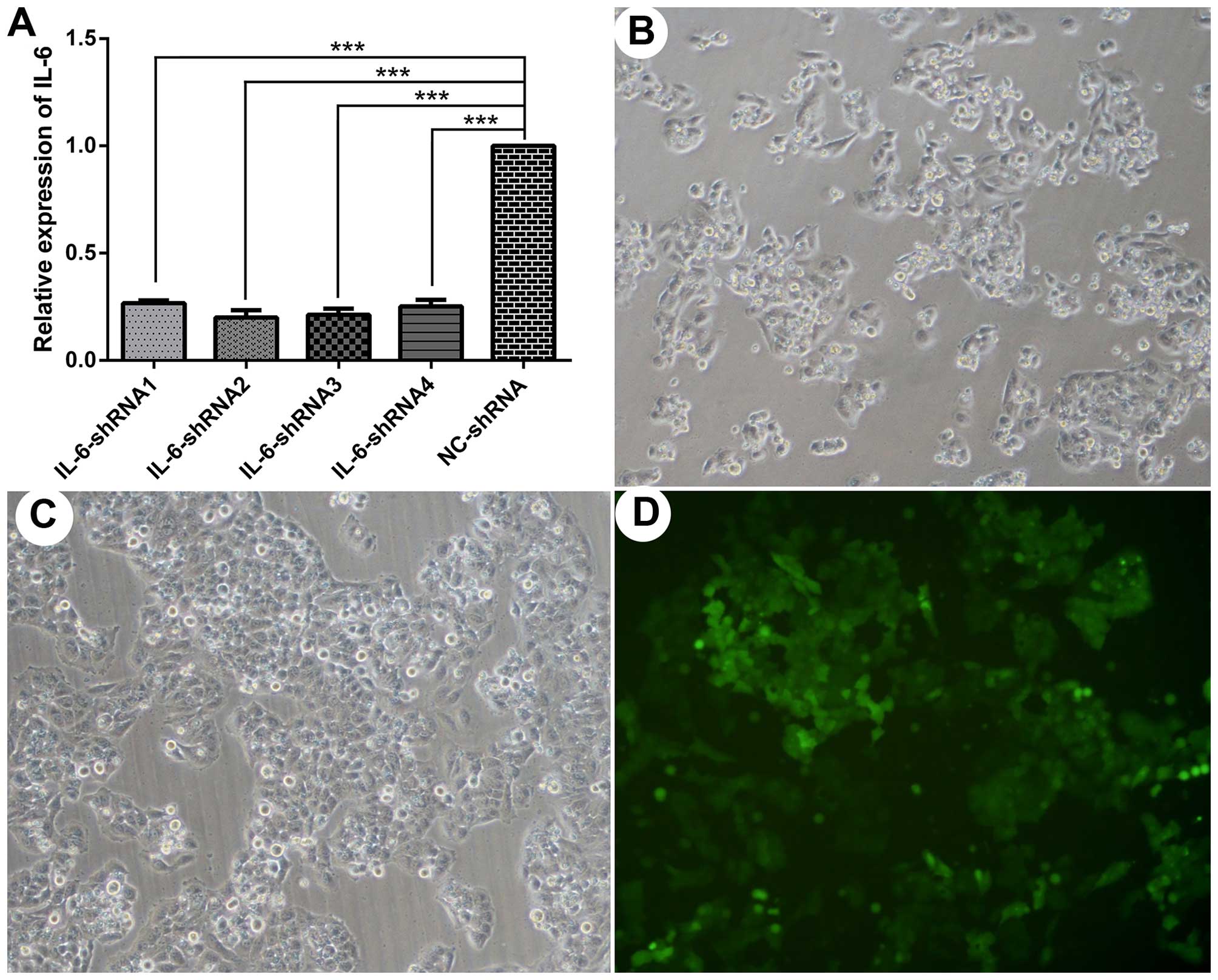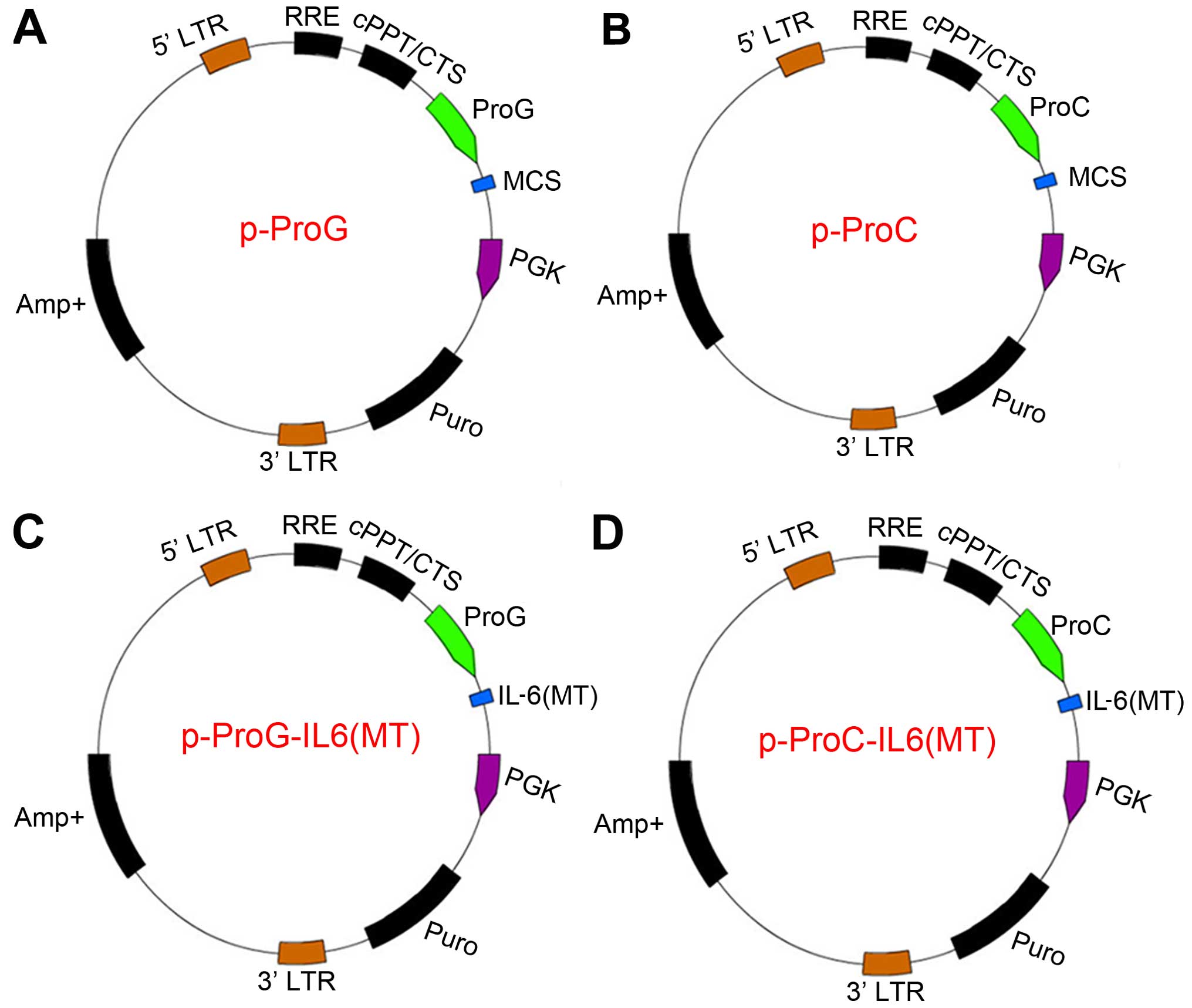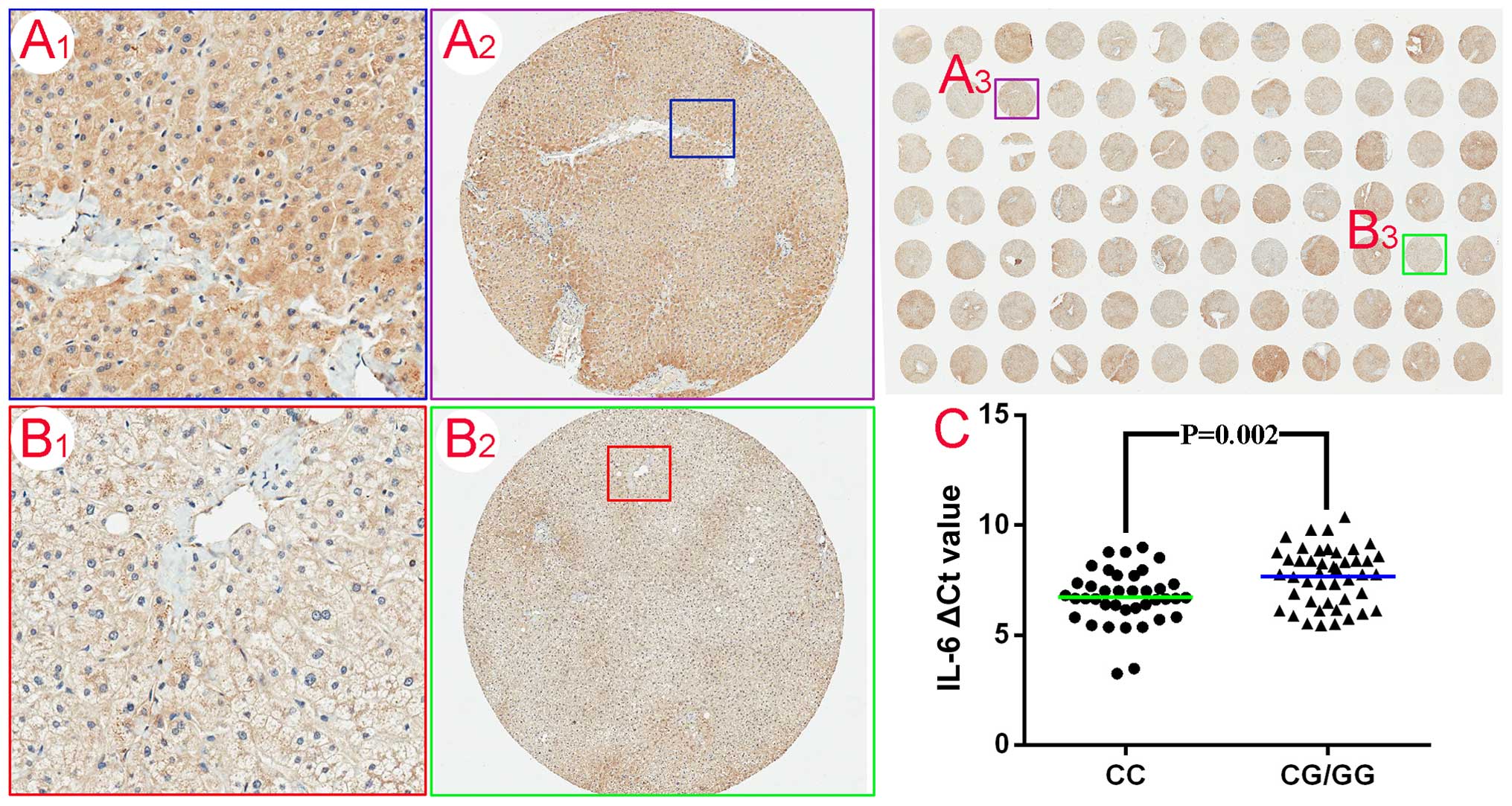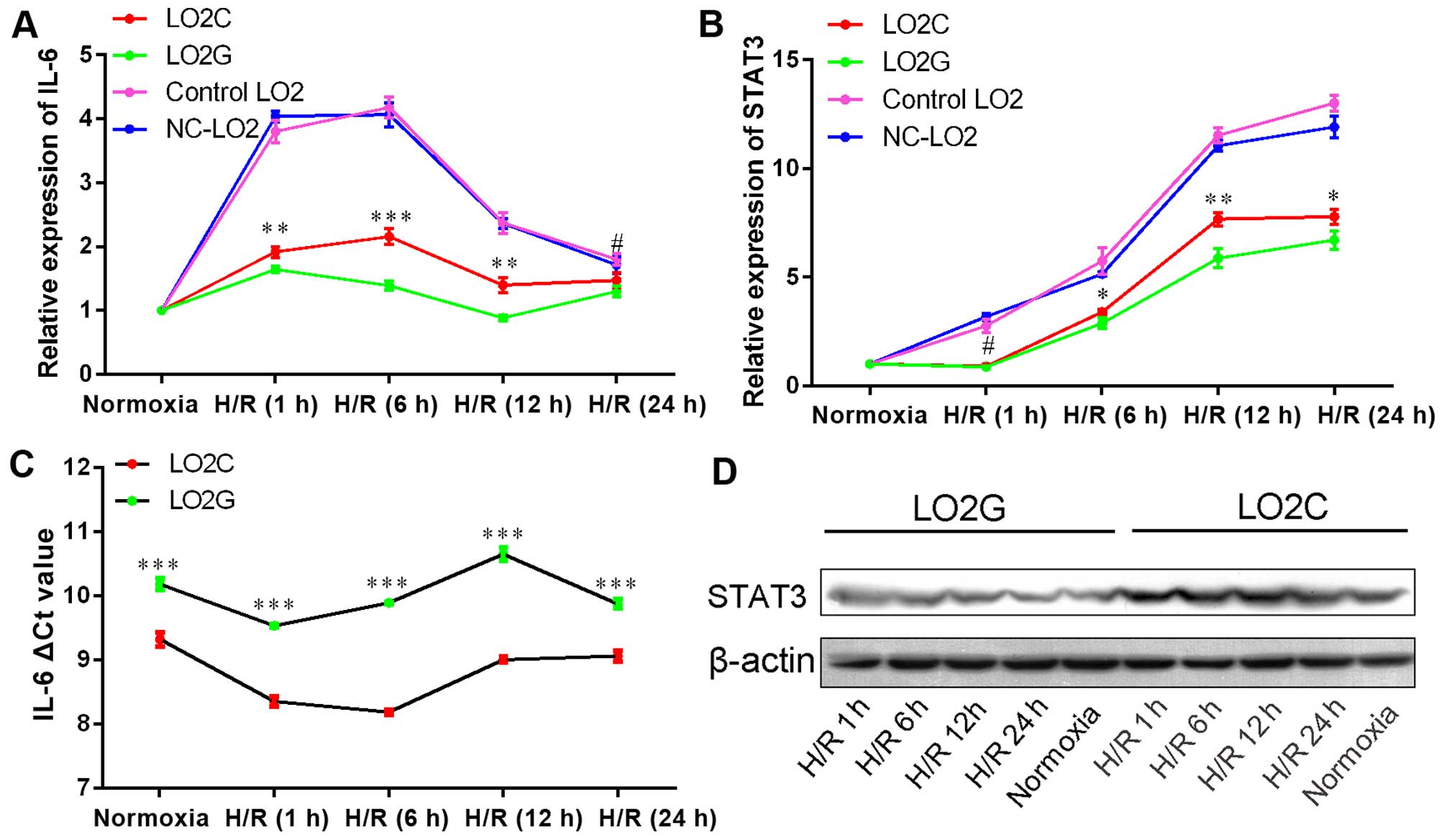|
1
|
Serracino-Inglott F, Habib NA and Mathie
RT: Hepatic ischemia-reperfusion injury. Am J Surg. 181:160–166.
2001. View Article : Google Scholar : PubMed/NCBI
|
|
2
|
Klune JR and Tsung A: Molecular biology of
liver ischemia/reperfusion injury: Established mechanisms and
recent advancements. Surg Clin North Am. 90:665–677. 2010.
View Article : Google Scholar : PubMed/NCBI
|
|
3
|
Hiranuma S, Ito K, Noda Y, Ozasa H, Koike
Y and Horikawa S: Amelioration of hepatic ischemia/reperfusion
injury in the remnant liver after partial hepatectomy in rats. J
Gastroenterol Hepatol. 22:2167–2172. 2007. View Article : Google Scholar : PubMed/NCBI
|
|
4
|
Taki-Eldin A, Zhou L, Xie HY and Zheng SS:
Liver regeneration after liver transplantation. Eur Surg Res.
48:139–153. 2012. View Article : Google Scholar : PubMed/NCBI
|
|
5
|
Streetz KL, Luedde T, Manns MP and
Trautwein C: Interleukin 6 and liver regeneration. Gut. 47:309–312.
2000. View Article : Google Scholar : PubMed/NCBI
|
|
6
|
Tiberio L, Tiberio GA, Bardella L, Cervi
E, Cerea K, Dreano M, Garotta G, Fra A, Montani N, Ferrari-Bravo A,
et al: Mechanisms of interleukin-6 protection against
ischemia-reperfusion injury in rat liver. Cytokine. 34:131–142.
2006. View Article : Google Scholar : PubMed/NCBI
|
|
7
|
da Silva CG, Studer P, Skroch M, Mahiou J,
Minussi DC, Peterson CR, Wilson SW, Patel VI, Ma A, Csizmadia E and
Ferran: A20 promotes liver regeneration by decreasing SOCS3
expression to enhance IL-6/STAT3 proliferative signals. Hepatology.
57:2014–2025. 2013. View Article : Google Scholar :
|
|
8
|
Selzner N, Selzner M, Odermatt B, Tian Y,
Van Rooijen N and Clavien PA: ICAM-1 triggers liver regeneration
through leukocyte recruitment and Kupffer cell-dependent release of
TNF-alpha/IL-6 in mice. Gastroenterology. 124:692–700. 2003.
View Article : Google Scholar : PubMed/NCBI
|
|
9
|
Yoshiya S, Shirabe K, Imai D, Toshima T,
Yamashita Y, Ikegami T, Okano S, Yoshizumi T, Kawanaka H and
Maehara Y: Blockade of the apelin-APJ system promotes mouse liver
regeneration by activating Kupffer cells after partial hepatectomy.
J Gastroenterol. 50:573–582. 2015. View Article : Google Scholar
|
|
10
|
Kämäräinen OP, Solovieva S, Vehmas T,
Luoma K, Riihimäki H, Ala-Kokko L, Männikkö M and Leino-Arjas P:
Common interleukin-6 promoter variants associate with the more
severe forms of distal interphalangeal osteoarthritis. Arthritis
Res Ther. 10:R212008. View
Article : Google Scholar : PubMed/NCBI
|
|
11
|
Li J, Song J, Jiang MH, Zheng JG, Gao SP,
Zhu JH and Pan M: Interleukin-6 promoter polymorphisms and
susceptibility to atrial fibrillation in elderly Han Chinese
patients with essential hypertension. J Interferon Cytokine Res.
32:542–547. 2012. View Article : Google Scholar : PubMed/NCBI
|
|
12
|
Gao SP, Liang S, Pan M, Sun RL, Chen C,
Luan H and Jiang MH: Interleukin-6 genotypes and serum levels in
Chinese Hui population. Int J Clin Exp Med. 7:2851–2857.
2014.PubMed/NCBI
|
|
13
|
Pan M, Gao SP, Jiang MH, Guo J, Zheng JG
and Zhu JH: Interleukin 6 promoter polymorphisms in normal Han
Chinese population: Frequencies and effects on inflammatory
markers. J Investig Med. 59:272–276. 2011. View Article : Google Scholar
|
|
14
|
Cheung BM, Ong KL, Tso AW, Leung RY,
Cherny SS, Sham PC, Thomas GN, Lam TH and Lam KS; Investigators of
the Hong Kong Cardiovascular Risk Factor Prevalence Study:
Relationship of plasma interleukin-6 and its genetic variants with
hypertension in Hong Kong Chinese. Am J Hypertens. 24:1331–1337.
2011. View Article : Google Scholar : PubMed/NCBI
|
|
15
|
Liao PY and Lee KH: From SNPs to
functional polymorphism: The insight into biotechnology
applications. Biochem Eng J. 49:149–158. 2010. View Article : Google Scholar
|
|
16
|
Chen D, Fan J, Guo F, Qin S, Wang Z and
Peng Z: Novel single nucleotide polymorphisms in interleukin 6
affect tacrolimus metabolism in liver transplant patients. PLoS
One. 8:e734052013. View Article : Google Scholar : PubMed/NCBI
|
|
17
|
Cheng B, Zheng Y, Guo X, Wang Y and Liu C:
Hepatitis B viral X protein alters the biological features and
expressions of DNA repair enzymes in LO2 cells. Liver Int.
30:319–326. 2010. View Article : Google Scholar
|
|
18
|
Chen J, Liu RY, Yang L, Zhao J, Zhao X, Lu
D, Yi N, Han B, Chen XF, Zhang K, et al: A two-SNP IL-6 promoter
haplotype is associated with increased lung cancer risk. J Cancer
Res Clin Oncol. 139:231–242. 2013. View Article : Google Scholar
|
|
19
|
Carini R, De Cesaris MG, Splendore R,
Bagnati M and Albano E: Ischemic preconditioning reduces Na(+)
accumulation and cell killing in isolated rat hepatocytes exposed
to hypoxia. Hepatology. 31:166–172. 2000. View Article : Google Scholar
|
|
20
|
Bhogal RH, Weston CJ, Curbishley SM, Bhatt
AN, Adams DH and Afford SC: Variable responses of small and large
human hepatocytes to hypoxia and hypoxia/reoxygenation (H–R). FEBS
Lett. 585:935–941. 2011. View Article : Google Scholar : PubMed/NCBI
|
|
21
|
Gabriel S, Ziaugra L and Tabbaa D: SNP
genotyping using the Sequenom MassARRAY iPLEX platform. Curr Protoc
Hum Genet. Chapter 2: Unit 2.12. 2009. View Article : Google Scholar : PubMed/NCBI
|
|
22
|
Li D, Yan D, Tang H, Zhou C, Fan J, Li S,
Wang X, Xia J, Huang F, Qiu G and Peng Z: IMP3 is a novel
prognostic marker that correlates with colon cancer progression and
pathogenesis. Ann Surg Oncol. 16:3499–3506. 2009. View Article : Google Scholar : PubMed/NCBI
|
|
23
|
Yan DW, Li DW, Yang YX, Xia J, Wang XL,
Zhou CZ, Fan JW, Wen YG, Sun HC, Wang Q, et al: Ubiquitin D is
correlated with colon cancer progression and predicts recurrence
for stage II–III disease after curative surgery. Br J Cancer.
103:961–969. 2010. View Article : Google Scholar : PubMed/NCBI
|
|
24
|
Cressman DE, Greenbaum LE, DeAngelis RA,
Ciliberto G, Furth EE, Poli V and Taub R: Liver failure and
defective hepatocyte regeneration in interleukin-6-deficient mice.
Science. 274:1379–1383. 1996. View Article : Google Scholar : PubMed/NCBI
|
|
25
|
Jin LM, Jin SF, Liu YX, Zhou L, Xie HY,
Yan S, Xu X and Zheng SS: Ischemic preconditioning enhances
hepatocyte proliferation in the early phase after ischemia under
hemi-hepatectomy in rats. Hepatobiliary Pancreat Dis Int.
11:521–526. 2012. View Article : Google Scholar : PubMed/NCBI
|
|
26
|
Motoyama S, Nakatsu T, Miura M, Hinai Y,
Minamiya Y and Ogawa J: Interleukin-6 -634G>C genetic
polymorphism is associated with prognosis following surgery for
advanced thoracic esophageal squamous cell carcinoma. Dig Surg.
29:194–201. 2012. View Article : Google Scholar
|
|
27
|
Oishi Y, Watanabe Y, Shinoda S, Naka M,
Ozawa Y, Matsuyama T, Morozumi K and Fuke Y: The IL-6 gene
polymorphism -634C>G and IL17F gene polymorphism 7488T>C
influence bone mineral density in young and elderly Japanese women.
Gene. 504:75–83. 2012. View Article : Google Scholar : PubMed/NCBI
|
|
28
|
Zhang G, Zhou B, Wang W, Zhang M, Zhao Y,
Wang Z, Yang L, Zhai J, Feng CG, Wang J and Chen X: A functional
single-nucleotide polymorphism in the promoter of the gene encoding
interleukin 6 is associated with susceptibility to tuberculosis. J
Infect Dis. 205:1697–1704. 2012. View Article : Google Scholar : PubMed/NCBI
|
|
29
|
Weibel ER, Stäubli W, Gnägi HR and Hess
FA: Correlated morphometric and biochemical studies on the liver
cell. I. Morphometric model, stereologic methods, and normal
morphometric data for rat liver. J Cell Biol. 42:68–91. 1969.
View Article : Google Scholar : PubMed/NCBI
|
|
30
|
Xiang WQ, Feng WF, Ke W, Sun Z, Chen Z and
Liu W: Hepatitis B virus X protein stimulates IL-6 expression in
hepatocytes via a MyD88-dependent pathway. J Hepatol. 54:26–33.
2011. View Article : Google Scholar
|
|
31
|
Norris CA, He M, Kang LI, Ding MQ, Radder
JE, Haynes MM, Yang Y, Paranjpe S, Bowen WC, Orr A, et al:
Synthesis of IL-6 by hepatocytes is a normal response to common
hepatic stimuli. PLoS One. 9:e960532014. View Article : Google Scholar : PubMed/NCBI
|
|
32
|
Lee CL, Chou M, Dai B, Xiao L and Wang P:
Construction of stable producer cells to make high-titer lentiviral
vectors for dendritic cell-based vaccination. Biotechnol Bioeng.
109:1551–1560. 2012. View Article : Google Scholar :
|
|
33
|
Li M, Husic N, Lin Y and Snider BJ:
Production of lentiviral vectors for transducing cells from the
central nervous system. J Vis Exp. 24:e40312012.
|
|
34
|
Giacopelli F, Marciano R, Pistorio A,
Catarsi P, Canini S, Karsenty G and Ravazzolo R: Polymorphisms in
the osteopontin promoter affect its transcriptional activity.
Physiol Genomics. 20:87–96. 2004. View Article : Google Scholar : PubMed/NCBI
|



















